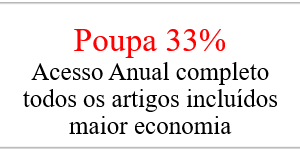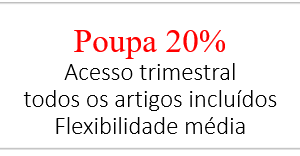By: Domingos M. Do Rosário & Egídio Guambe[i]
Maputo (MOZTIMES) - This text puts a pragmatic hypothesis of reinvention of the approach of construction of Mozambique as a state, in the sense of management capacity of society with aspirations for common good. It is based on the idea that the current political situation, characterized by demonstrations almost widespread throughout the country, either in the streets or in social networks by other means, is a critical juncture for a radical change in the perspective of negotiation between the state and society. The text deliberately ignores the input from political parties, because as intermediary actors, their validity must be annulled when the relationship between the state and society, the main actors, reaches the level of exhaustion of trust to the point where unwarranted violence is introduced as a mechanism for action.
Mozambique is a state that is still under construction, and its governance structures, institutions, organizations, ways of appointing public office holders (including electoral administration bodies, the Constitutional Council) and ways of meeting with society are still volatile[ii]. These are, in part, the main reasons for the cyclical crises. It seems to us, at the current stage of the crisis, that the time has come to change the formula that has historically legitimized the relationship between the state and the parties, while excluding society.
From the heritage of a war of colonial emancipation, the construction of the model of state management in Mozambique was always thought of as the pacification of wars[iii], with an argument centered on peace. The constellation of interests, the invention of institutions and their composition was always conceived from the point of view of consensus for peace. Moreover, there is clear evidence that since the peace agreements of 1992 and the foundation of multi-party democracy, the palliatives of peacebuilding have always been accommodated in the idea of consensus and non-violence between the without, however, the integration of society.
This perspective has prevented the construction of an inclusive matrix based on the canons of justice (a classic concept since Plato) which have historically been the main motive for the collective action of states. The current crisis, especially the popular uprisings that have become more intense as a result of electoral fraud, or the protests spread via social networks, undoubtedly demonstrate the need to “build” more “justice” (in the sense of inclusion, transparency, responsibility) forms of governance. With the strong evidence of the end of bipartisanship (FRELIMO vs RENAMO) and the political and electoral erosion of RENAMO, there is an urgent need to rethink and rebuild new formulas for managing the state. Therefore, to overcome the deep crisis that has been affecting Mozambique since the 1990s, we need to focus on a methodology of dialog that is geared towards a model of “social justice” and not negotiation based on accommodation for peace and political parties. Although peace is an important concept, it must be the consequence of the application of justice. For concrete action, vis-à-vis the current context, from this perspective we raise three main scenarios that seem fundamental to us:
- Annulling the Elections: one of the first acts and courage to reinvent the ways of doing politics for a sustainable Mozambique would be to annul the electoral process. Organized based on a partisan model of electoral management institutions, there are no conditions for a fair solution. In fact, this is a structural crisis resulting from a long-lasting process of social, political and economic exclusion, but whose epicenter was the Presidential and Legislative General Elections and the Provincial Elections (Governor and Assemblies). In this context, it is first necessary to find alternatives to overcome the “chaos” in which Mozambique finds itself. Our practical experience of 30 years of managing elections at national and continental level allows us to doubt the integrity and transparency of these elections, due to the serious material irregularities that occurred, especially on voting day. If the Constitutional Council, as part of its work, were to strip away the “party colors” and impartially analyze not only the merits of the complaints coming from the political parties, but also the social and political cost of its decision for the future of Mozambique, annulling these elections should be a possibility for the Constitutional Council to consider. We have no reservations that, in the current circumstances, any solution based on the model in vogue would not be able to mend the fissures in the social fabric. The disjunction of the social plates could cause serious difficulties.
- Forming a Transitional Government: once the elections have been annulled, it would be an important step to invite the current President of the Republic to propose a peaceful and reconciliatory way out with society. This would involve setting up a Transitional Government, lasting between 12-18 months, with clear terms of reference, not only in its composition, but also with a mandate on the organization of elections. The method of managing the new elections would be based on an agreement to set up an impartial actor outside the multi-party model, even if only temporarily with management supported by the “international community” or specialized institutions. In situations of deep crisis between the state and society, like the one we find ourselves in in Mozambique, the transitional government can function not only as a “canceller” of social and political crises but can also act as a deterrent and restore an environment of minimal trust. Only a consensual and balanced model can allow an immediate exit from this post-election crisis[iv]. During the term of the transitional government, the different actors involved should invest time in working on inclusive political reforms (example: re-founding the state through depoliticization), and develop dialogue platforms to build consensus between the different groups in society, influential local actors, which the discussion on “peace and reconciliation” over the last 20 years in Mozambique has left “outside the system”[v];
- Redefining a model of justice to build the state: the trend of the 2024 election results has shown that the two-party approach and the precarious peace negotiation arrangements are no longer a sustainable approach to building the state as a destiny-sharing entity. In fact, the dynamics of modern state-building are centered on the idea of the common good, understood through the construction of contracts, either to protect individual property or to rely on an entity that guarantees the collective structure. In the context of contracts, the main motive is the perception that what is delegated is equivalent to what is received in return. For this perception to be factual, institutions are the main devices through which the collective establishes its ideal and guarantees stable and predictable interaction. The most stable states in the world have opted for a credible model of institutional development. Mozambique's current situation presents itself as a fundamental window to restore credibility to institutions. Unlike the context of colonial emancipation, Mozambique today has the fundamental foundations to establish an organizational and operational structure based on a project to shape collective well-being. It is an agenda that must be taken with responsibility beyond the simple interests of the political actors in power. (DMR/EG)
[i] Political Science and Public Administration Professors living in Mozambique
[ii] While the judges of the Constitutional Council, which functions as the electoral court of last resort, are appointed by the Frelimo and Renamo parties in the light of the 1992 Rome General Peace Accords, the electoral bodies, which are of a partisan nature, have undergone some reforms under the peace agreement (2014) to accommodate the clientelist interests of the parties with parliamentary seats. For example, the latest reforms in 2014, which make Mozambique a unique case in the world, consisted not only of the co-option of members of civil society by each of the parties with seats in parliament, but also the appointment of members of political parties to take part in polling stations.
[iii] War of aggression and then civil war (1976-1992); 2nd civil war (2012-2014). Since 1975, 4 agreements have been signed for stability and peace in Mozambique: (Nkomati Agreement - 1984; Rome General Peace Agreement - 1992; Cessation of Hostilities Agreement - 2014; Final Peace Agreement - 2018). Most of these agreements had a strong involvement of international actors and exclusion of society. On the civil war see. E. M Genoud, M. Cahen and D. M Rosário (org). The War Within: New Perspectives on the Civil War in Mozambique, 1976-1992. Suffolk: James Curry; New York: Boydell & Brewer, 2018.
[iv] H. Hegre & F. Hanne, “Democratization and pos conflict transitions”. In Hewitt, J. (dir.) Peace and Conflict New York: Routledge, 2010.
[v] G.Hyden, Beyond Ujamaa in Tanzania: Underdevelopment and an Uncaptured Peasantry. California: University of California Press, 2022.



















